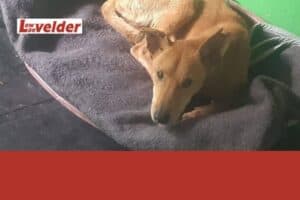A common scenario is when newly married couples treat their first dog as a child substitute.

This over-privileged dog becomes accustomed to a certain status level with all its perks including sleeping on the bed, sitting on the sofa and being kissed all day. When a new child arrives the established canine companion does not perceive this new creature as a delicate baby requiring care and respect.
This baby is a competitor for all the privileges because the parents are not obeying the rules of introducing a low-ranking newcomer into the hierarchy system.
The child is given everything the dog used to have, is cooed and cuddled in the same manner, the dog rapidly and instinctively has to defend its status against the new threat. All it needs to do is growl or bite then the writing is on the wall for relocation and euthanasia. If the introduction had been carried out with the advice of an animal behaviourist or veterinarian the dog would have welcomed the child as part of the pack. Unfortunately, many people live in a fantasy and not a reality with nature.
When parents experience the tragedy of their “first child” attacking their second child it is not only traumatic, emotionally and mentally for the adults, physically for the child, but the trust and friendship is permanently betrayed. Many dog owners cannot read the early warning signs from a potentially threatening pet because most people do not subscribe to training and do not understand the normal behaviour of a dog let alone the dangerous negative posturing and vocalisations.
It is important that parents supervise the interaction of dogs and children. They need to know what to look for that is positive and reward the behaviour of dog and child. If there are unacceptable behaviours coming from child or dog, the parents need to be assertive, educated and disciplinary to prevent a minor skirmish or incident becoming a problem later on in life.
Animal behaviourists and veterinarians constantly strive to resolve animal behaviour disorders. When the particular problem is aggression-based the causes, approach and consequences receives higher priority. When the situation involves dog-on-human aggression then the most serious professional consideration is given. While both professions are always attempting to find solutions to behaviour problems with animals the behaviourist focuses more on owner behaviour modification, environmental stimulation, obedience training, and so on while the veterinary ethologist will offer similar advice coupled with the recommendation and dispensary of prescription psychotropic medicines.
There is no drug which can reliably treat aggression in dogs. There is no magic wand or quick-fix which can turn a fear-aggressive dog into a socially acceptable pet by an animal behaviourist or dog trainer. There has to be a full family commitment, determination, consistency and common goal in order to nip early detectable aggression in the bud.
There is an enormous, yet admirable, trend to rescue dogs from animal welfare shelters. Without a history of the dog one is taking a serious risk. It is imperative, under these circumstances, to call in the professionals to expose the newly acquired dog to toddlers and young kids to evaluate its attitude and reliability. It is ludicrous adopting a dog that may well have been placed in an animal shelter for having attacked a child.
It does mean that a dog which is over-friendly towards dogs is guaranteed to be tolerant with children. The way children behave requires serious consideration, observation and control. Undisciplined children running away from the dog, screaming and teasing will bring out any dog’s predatory instincts and incite the dog to bring the “prey” to ground – then suffer the consequences of its natural reaction to the triggers.
ASK PLATZHUND: Have a question about your pet’s behaviour? Ask Dr. Platzhund a question in the comment section below or e-mail [email protected]
Support Local Journalism
Add The Citizen as a Preferred Source on Google and follow us on Google News to see more of our trusted reporting in Google News and Top Stories.








